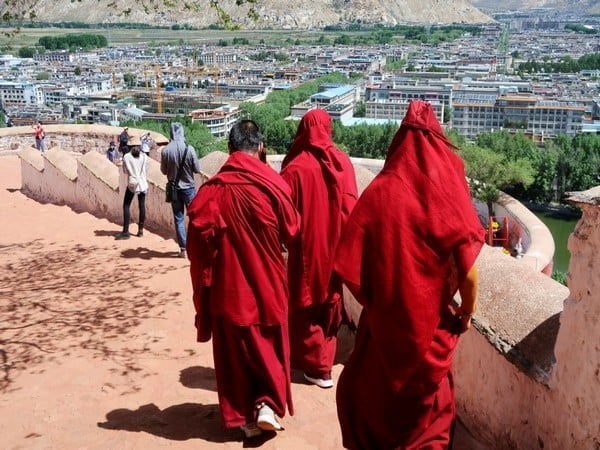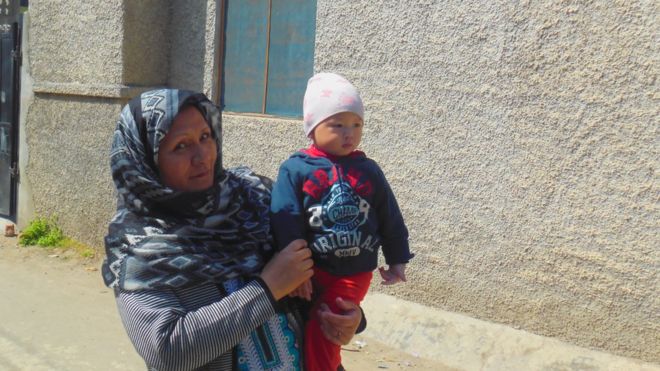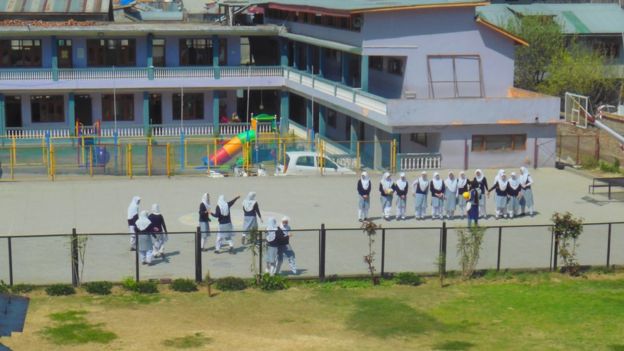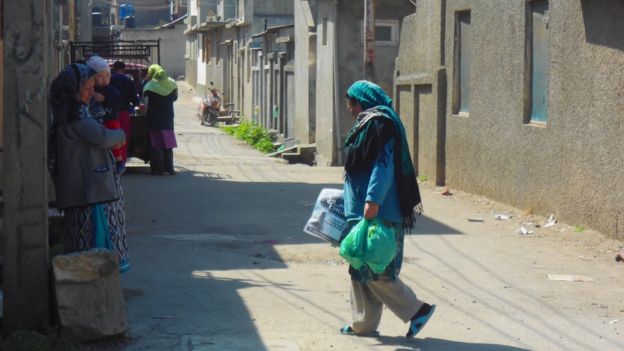Srinagar, JAMMU & KASHMIR:

Inside the picturesque city of Srinagar, nestled in Jammu and Kashmir, an extraordinary community of Tibetan Muslims has found a thriving home.
Welcomed as co-religionists in this predominantly Muslim area, approximately 1,500 Tibetan Muslims have not only preserved their unique culture and traditions but have also established deep connections with their Kashmiri neighbours. Through their vibrant restaurants and cultural endeavours, they have fostered a sense of unity and understanding, exemplifying the power of cultural integration.
Unlike most Tibetan refugees who sought shelter in Dharamshala after fleeing their homeland six decades ago, these Tibetan Muslims view their arrival in Kashmir as a return to their ancestral origins. Their ancestors migrated from Kashmir to Lhasa centuries ago, where they intermarried with Tibetans, embraced the Tibetan language, and formed a distinct community. Their lives in Lhasa were marked by religious freedom and unhindered business endeavours.
Since settling in Kashmir, the Tibetan Muslim community has primarily found a home in Srinagar, particularly near the historic Hari Parbat Fort. The neighbourhood now thrives with Tibetan restaurants and establishments that proudly showcase the cultural roots of its inhabitants.
Among them, the Lhasa Restaurant, managed by Ahmad Kamal Zarief, has become a local favourite. Tibetan dishes, such as the beloved Momos, have garnered immense popularity among younger Kashmiris, forging stronger bonds between the communities. For Zarief, the restaurant holds deep sentimental value as it allowed his father, Abdul Rehman Zarief, to reconnect with his Tibetan heritage. Through the flavours of Tibetan cuisine, Abdul found solace and cherished memories of his ancestral village. The Lhasa Restaurant not only serves as a testament to the preservation of Tibetan traditions but also as a bridge that connects Tibetan Muslims and Kashmiris through shared culinary experiences.
Intercommunity marriages, though not commonplace, have occurred between Tibetan Muslims and Kashmiris, bringing the communities even closer.
Nighat Qazi, who married a Tibetan man and has three children, initially faced resistance from her family. However, with time, her decision has been appreciated and embraced, as it exemplifies the potential for greater integration and understanding through inter-community unions.
The younger generation of Tibetan Muslims has gradually let go of the longing for their ancestral homeland, which remains under Chinese control. As a result, they have adopted Kashmiri customs, language, and preferences, blending seamlessly with their Kashmiri friends.
At the Tibetan Public School, where the revered Dalai Lama delivered a speech in 2012, most students are local Kashmiris. The influence of their Kashmiri peers is evident, as they share activities and aspirations, forming strong bonds that transcend cultural boundaries.
Despite assimilating into Kashmiri culture, Tibetan Muslims have managed to preserve their national language. Within their homes, they continue to communicate in their language, honouring it as one of the finest dialects of Tibetan.
Despite residing in Kashmir for over six decades, it was only in 2019, when the Indian government revoked the region’s semi-autonomous status, that Tibetan Muslims received official citizenship and the right to permanently reside in the area. Throughout their time in Kashmir, they have experienced warm hospitality and acceptance from the Kashmiri people, fostering a sense of belonging and community.
The thriving Tibetan Muslim community in Kashmir is a testament to the power of acceptance, cultural exchange, and integration. Through their unique journey, they have not only preserved their heritage but have also formed deep bonds with the local Kashmiri population.
Embracing their present reality, Tibetan Muslims have found solace and prosperity in Kashmir, intertwining their rich traditions with the vibrant tapestry of Kashmiri culture.
This report is filed by ANI news service.
source: http://www.thenewsmill.com / The News Mill / Home / by ANI / June 20th, 2023











